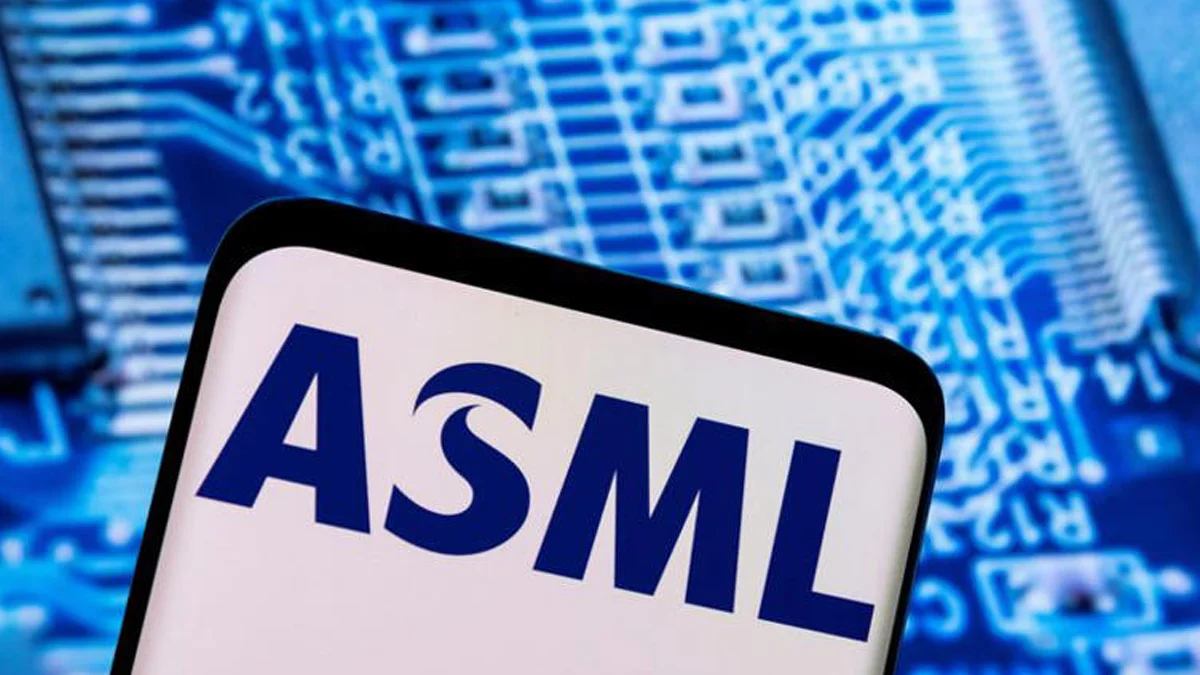Necessary Always Active
Necessary cookies are required to enable the basic features of this site, such as providing secure log-in or adjusting your consent preferences. These cookies do not store any personally identifiable data.
|
||||||
|
||||||
|
||||||
|

The world’s largest computer chip manufacturing equipment vendor, ASML, has said that it might fall short of its 2026 growth targets, CNBC reported. The company made this announcement on July 16, even as ASML Q2 2025 results surpassed analyst expectations.
ASML’s Q2 net sales stood at 7.7 billion euros against the 7.52 billion euros expected. The company’s net profit for the quarter stood at 2.29 billion euros against the expected 2.04 billion euros. Roger Dassen, ASML’s Chief Financial Officer, attributed the revenue performance to the upgrading of machines and the reduced tariff impact.
ASML’s Q2 EUV report lowered the company’s forecast for the next two quarters. The company forecasted revenues of between 7.4 and 7.9 billion euros in quarter three. This is slightly lower than the market expectations of 8.3 billion euros. The company said it expects its 2025 net sales to grow by about 15% to about 32.5 billion euros.
This is slightly lower than the 30 to 35 billion euros that the semiconductor equipment supplier had forecasted previously. However, the Dutch equipment supplier appeared to be more certain about its 2026 performance.
“Looking at 2026, we see that our AI customers’ fundamentals remain strong. At the same time, we continue to see increasing uncertainty driven by macroeconomic and geopolitical developments. Therefore, while we still prepare for growth in 2026, we cannot confirm it at this stage,” ASML CEO Christophe Fouquet said in a statement.
Like other firms in the chip industry, ASML has been struggling with the uncertainty created by America’s tariff policy. The unpredictable tariff negotiations have pushed chip manufacturers in the US into delaying investments.
ASML shares dropped 6.5% in the European markets as trading started early in the morning. Commenting on the tariffs, Dassen said a 30% tariff on EU products could push the price of a single high-end equipment from 250 to 325 million euros.
“Clarity is what customers are looking for before they can finalize their views as to what they’re going to do,” Dassen said during the call with the media.
Besides affecting the cost of finished products, the tariffs could rise several times as ASML sends parts from the Netherlands to the US. Analysts expected ASML’s quarter 2 results to offer some reassurance in its 2026 outlook. However, the company cautioned that its prospects remain clouded due to geopolitical uncertainties.
“The level of uncertainty is increasing, mostly due to macroeconomic and geopolitical consideration. And that includes, of course, tariffs,” ASML Chief Executive Christophe Fouquet said.
ASML said it’s preparing to grow in 2026, but it could not confirm what that growth would look like at this stage. If its growth slows down in 2026, it will be the first for the company in over 10 years of uninterrupted revenue increase.
ASML has reaped big from the rising AI chip demand. In its quarter two earnings, the company reported 5.5 billion euros in net bookings for the April-June quarter, against analyst expectations of 4.19 billion euros. This points to strong demand for its products. As one of the critical semiconductor supply chain companies, ASML manufactures extreme ultraviolet lithography (EUV) machines needed to make the most advanced chips like those designed by Nvidia and Apple.
According to Dassen, AI demand has been a big driver for its EUV products. The company launched its next-generation EUV machines, called high numerical aperture. These machines are critical to ASML’s future growth, and they can cost over $400 million each. Already, the company has shipped these machines to its customers.